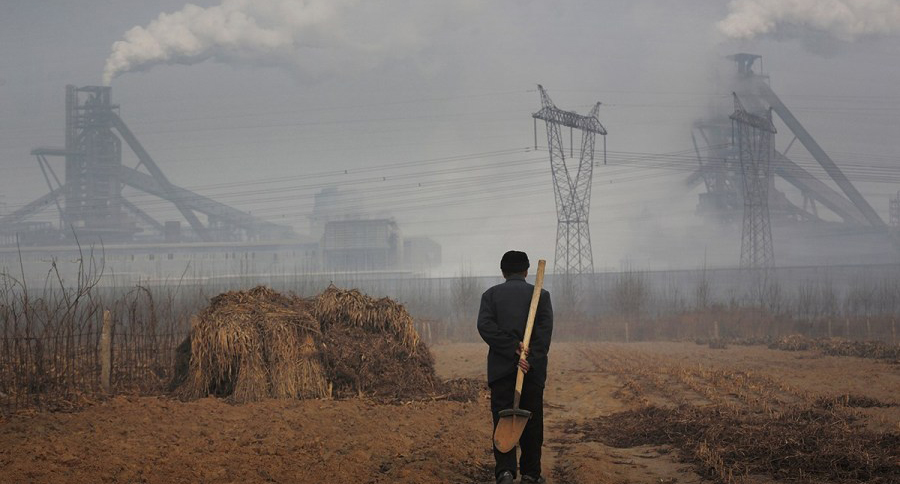‘Green GDP’ studies resume with broader scope

Severe air pollution in recent years has raised awareness of China’s environmental problems among policymakers, who are increasingly paying attention to the “green GDP” indicator to account for environmental costs.
The Ministry of Environmental Protection recently resumed research into the calculation of “green GDP,” an index of economic growth that factors in the environmental consequences of conventional GDP growth. From the implementation of new environmental protection laws since the beginning of the year to the recent release of guidelines for accelerating the construction of an ecological civilization by the central leadership of the Communist Party of China and the State Council, China has designed an overall plan to promote an ecological civilization and advance research into its “green GDP.”
Research on how economic and social development is related to the environment and resources is hardly a new phenomenon.
“Some economists, including Simon Kuznets (1901-1985) and Wassily Leontief (1906-1999), brought up the idea of calculating the national economy based on the addition of finished products and services in the 1940s. They eventually won the Nobel Prize in economics for their great contribution,” said Cao Heping, a professor from the School of Economics at Peking University.
“People then paid more attention to economic activity and regarded nature as a variable. However, as economic activity becomes more complicated, people have had to take nature into account.”
Since the 1970s, international organizations, including the United Nations and World Bank, have made many efforts to study and promote the value of “green GDP.” It requires incorporating resources and the environment into the calculation system and deducting the costs of resources depletion, environmental degradation, ecological damage and pollution abatement from the conventional GDP.
Li Zuojun, deputy director of the Institute of Resources and Environmental Policies at the Development Research Center of the State Council, said that China has entered a high-cost period that urgently requires a transition to cultivate a new point of economic growth.
“The most important thing in this transition is to establish an evaluation system. Research on ‘green GDP’ is conducive to rebuilding the economic calculation system, thus realizing sustainable development,” Li said.
Zhang Yong, vice-chairman of the National Development and Reform Commission, added that “green GDP” development can further step up the construction of China’s ecological civilization through joint efforts.
This is not the first time China has studied its “green GDP” development. As early as 2004, the State Environmental Protection Administration, now the Ministry of Environmental Protection, jointly conducted research with the National Bureau of Statistics into the calculation of “green GDP.”
The two bureaus jointly released the China Green National Accounting Study Report (2004) in September 2006, the only report to disclose calculation of “green GDP” to the public.
However, research into “green GDP” stalled after the report and failed to make significant progress in the following years.
Many scholars claim that restarting research into “green GDP” is a good sign of implementing the guidelines of the central government on environmental protection, conforming to the tendency of sustainable development.
From research to practice, it is necessary to make many efforts, including designing related mechanisms, to deepen research into “green GDP” calculation. Li said that it requires not only taking all factors into account, but also designing statistical, evaluation and rewards and punishment systems.
In terms of an ecological civilization, the comprehensive evaluation system involved in research may be only one part. It is therefore necessary to understand it on a broader scope.
Xun Qingzhi, a professor from the School of Marxism at Peking University, said it is difficult to bring many ecological indexes into the economic calculation system from the perspectives of philosophical ethics and socialism.
Xun is engaged in research of ecological Marxism and ecological socialism, and focuses on making the construction of an ecological civilization a key strategy. “Many efforts need to be made, which include reaching a consensus and building a new systematic framework and set of comprehensive systems covering ecological management, ecological economics, society and culture,” said Xun.
Huo Wenqi is a reporter at the Chinese Social Sciences Today.
